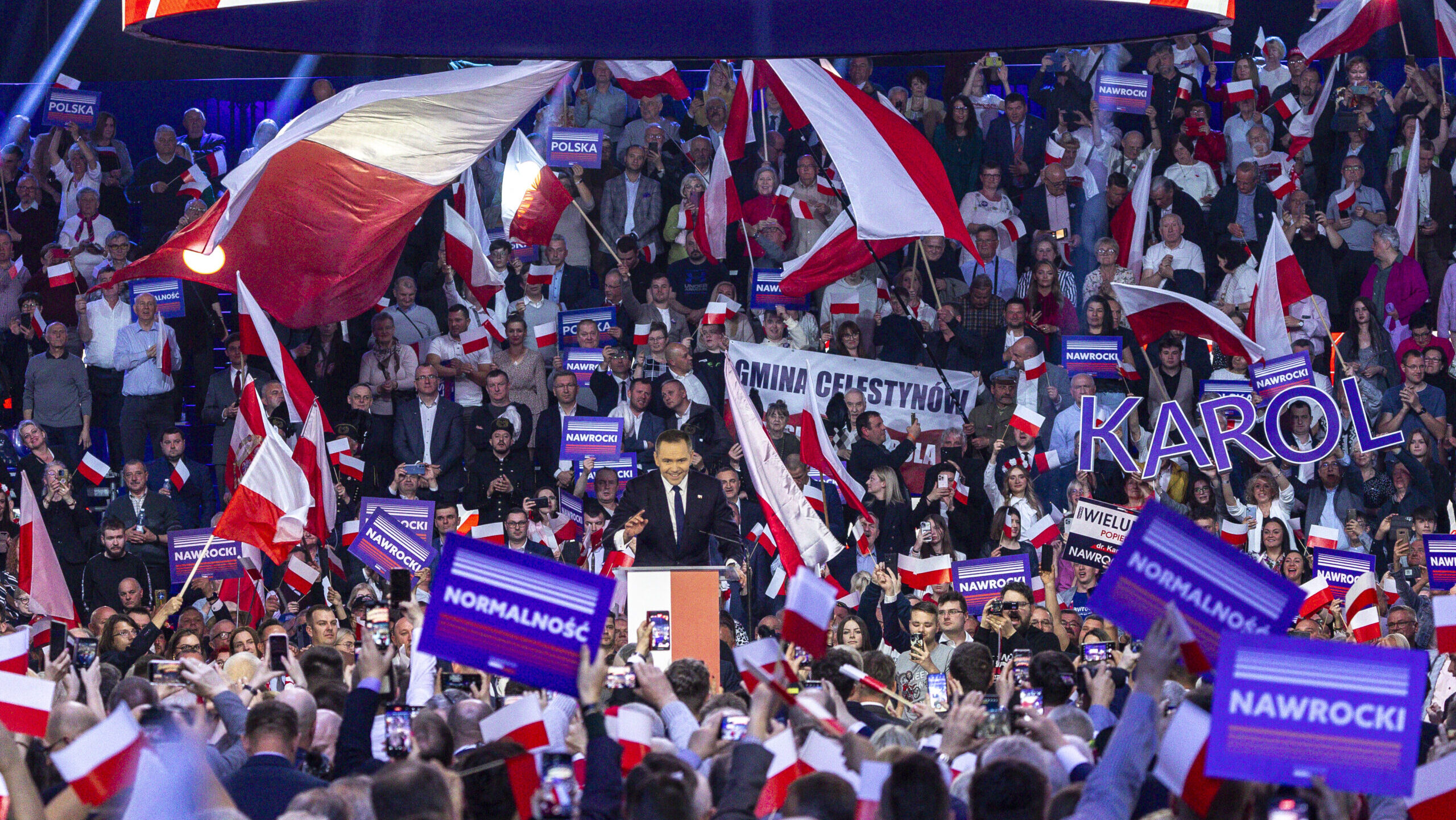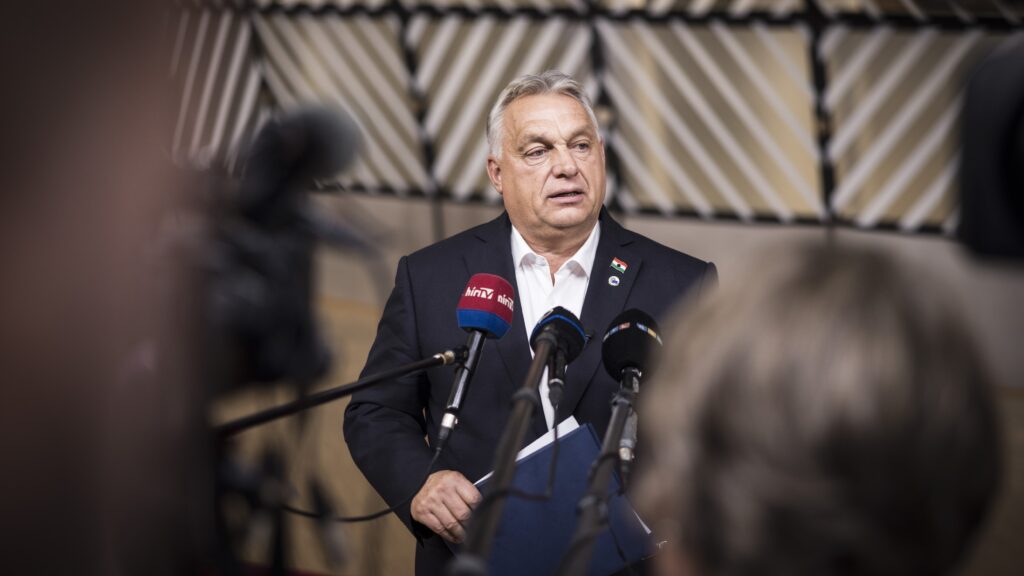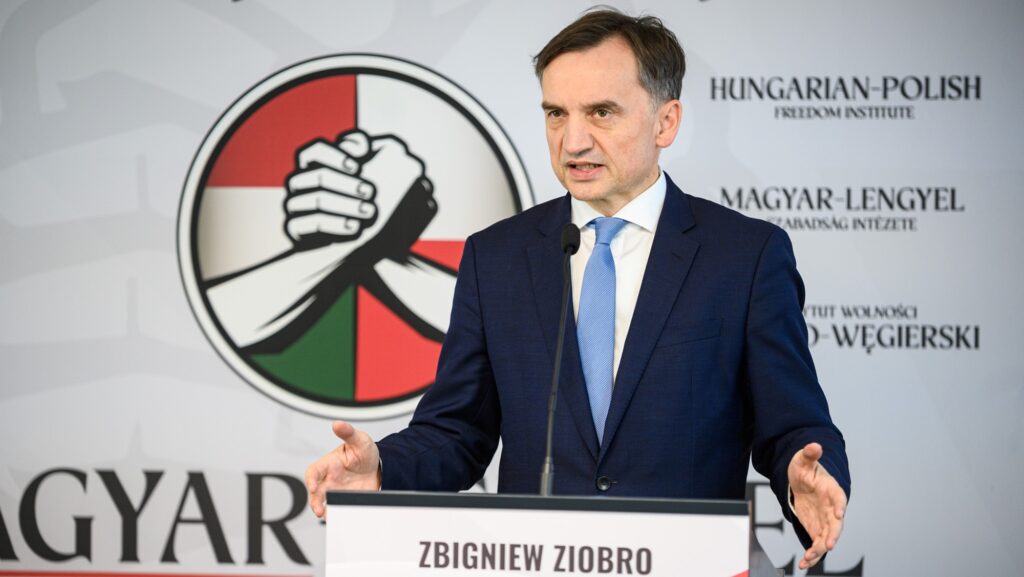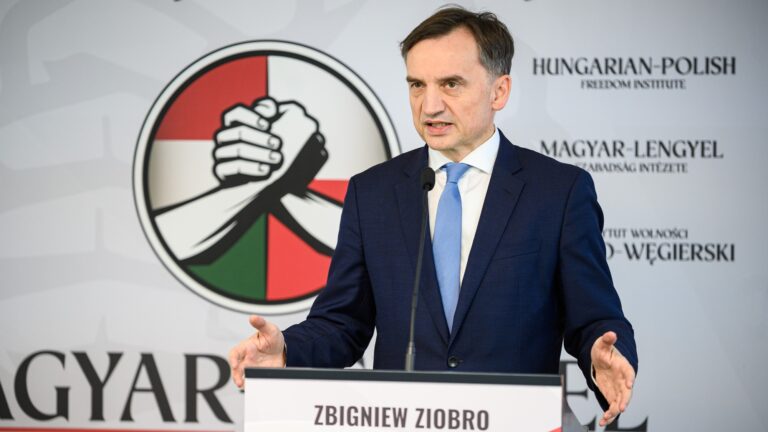Poland is set for the first round of its presidential elections on Sunday, 18 May—a vote of real significance. The stakes are extremely high: should Donald Tusk’s candidate, Warsaw Mayor Rafał Trzaskowski, secure victory, there will be no remaining institutional counterweight to the Polish Prime Minister’s power. That said, it is unlikely that the election will be decided on Sunday; the two candidates who receive the most votes are expected to advance to a second round, scheduled for early June.
After eight years in government, the right-wing conservative Law and Justice party (PiS) lost the parliamentary elections in October 2023, paving the way for Donald Tusk to return to power. As his government took office on 13 December 2023, Tusk immediately launched a crackdown on democratic institutions, the judiciary, and public media in order to cement his rule. In parallel, he initiated legal proceedings against political opponents and civil servants—processes marred by rights abuses, intimidation, and psychological torment.
While Tusk has successfully dismantled much of the judiciary with the assistance of his Justice Minister, Adam Bodnar, the only remaining institutional check on his expansive power is currently PiS-affiliated President Andrzej Duda. In Poland, the president can veto government bills, serves as the commander-in-chief of the armed forces, holds influence over foreign policy, and can propose new legislation. However, Duda is constitutionally ineligible to run for a third term. PiS is backing Karol Nawrocki, a conservative historian, against Trzaskowski.
Patriots versus Eurocrats
Nawrocki, 41, previously directed Poland’s World War II Museum and the Institute of National Remembrance—an organization tasked with documenting wartime crimes against the Polish nation. This background plays a key role in his campaign. While supporting Ukraine in its self-defence against Russia, Nawrocki believes that Kyiv should continue its integration into the transatlantic alliance system only if it acknowledges and addresses the World War II-era massacres of Poles in Volhynia—a legacy that remains the most contentious issue in Polish–Ukrainian relations. He also firmly rejects the idea of deploying Polish soldiers on Ukrainian soil for peacekeeping efforts or security guarantees.
Nawrocki—and PiS—advocates a political approach very similar to that of Hungary and Viktor Orbán. The candidate promises a hard stance against illegal migration and a withdrawal from the European Union’s migration pact. Both PiS and Fidesz stand for sovereign nation-states over a centralized Europe and reject LGBTQ and gender propaganda, instead promoting traditional values and the family. As PiS MP Janusz Kowalski stated in an interview with Hungarian Conservative in April: ‘Nawrocki wants to take a similar approach [as Hungary] by making the tax system work better for families’, referring to a recent tax exemption for mothers with two or more children introduced by Orbán’s government.
Meanwhile, Trzaskowski would fully align with Tusk and the EU leadership. The liberal mayor of Warsaw—described by Kowalski as a ‘staunch Eurocrat’—supports a more centralized EU, calling for the surrender of further sovereign rights to Brussels bureaucrats. As mayor, Trzaskowski signed a declaration supporting LGBTQ+ rights, advocating anti-discrimination measures and inclusive education. Like Tusk, Trzaskowski pushes for so-called ‘judicial reform’—which, as the past 18 months have demonstrated, effectively means the dismantling of the rule of law. Polish citizens appear to share this view: according to a survey published by Rzeczpospolita, nearly 35 per cent of respondents believed the state of the rule of law in Poland had ‘significantly worsened’ since Tusk returned to power—by far the most common response.
‘We must win the election, and afterwards, we must restore the rule of law. I have great respect for our Constitution, our legal traditions, and our institutions. Sadly, Eurocrats and politicians like Donald Tusk do not respect the law—either in Europe or in Poland. They violate the legal order,’ Kowalski emphasized in the aforementioned interview.
AtlasIntel Bets on Nawrocki
The outcome of the presidential election will also impact Hungarian–Polish relations, which are currently at a historic low. After Tusk began his crackdown on political opponents, Hungary granted political asylum to former Deputy Justice Minister Marcin Romanowski, who is widely regarded as a victim of political persecution. Poland responded with a diplomatic offensive unprecedented in the history of the two historically close nations—and continues this posture to this day. Hungarian Minister of Foreign Affairs and Trade Péter Szijjártó stated on Thursday that his Polish counterpart, Radosław Sikorski, is cooperating with both Kyiv and Brussels in a disinformation campaign against Hungary. Should Trzaskowski win, these trends are anticipated to continue, likely with even greater intensity.
Nawrocki’s victory, however, is only possible with the support of Poland’s third-largest party, Konfederacja, and its candidate Sławomir Mentzen. Mentzen is polling at around 8–12 per cent according to most pollsters, placing him in third position behind the two front-runners. Konfederacja—a member of the Patriots for Europe (PfE), the European Parliament group co-founded by Viktor Orbán—centres its platform on national sovereignty, economic freedom, and the defence of traditional values.
‘AtlasIntel—considered one of the most accurate pollsters globally—forecasts a Nawrocki victory in both rounds’
The party calls for limiting the EU’s powers, adopting directives only when strictly necessary, and avoiding additional burdens on citizens. also opposes the Green Deal, advocates lower taxes, stronger border controls, and increased domestic defence production. On most issues, his views align closely with Nawrocki’s, suggesting that his support base could offer Nawrocki a critical boost in the second round—if he makes it there.
According to recent Polish polls, Trzaskowski is expected to win the first round, but fall short of the 50 per cent plus one vote required to avoid a runoff. Most surveys place Trzaskowski at around 28–32 per cent, with Nawrocki trailing at approximately 25–26 per cent. However, AtlasIntel—considered one of the most accurate pollsters globally, having correctly predicted both the 2020 and 2024 US presidential election outcomes—forecasts a Nawrocki victory in both rounds. Their most recent survey in Poland shows the PiS-backed candidate receiving 30.3 per cent in the first round, compared to Trzaskowski’s 29.5 per cent. In a hypothetical second round, 51 per cent of respondents would vote for Nawrocki, versus 49 per cent for Trzaskowski.
Foreign Interference and Fear of Annulment
But would there even be a second round in such a scenario? That remains an open question. As Kowalski warned in his interview with Hungarian Conservative: ‘Similarly to the annulment of the results of the Romanian presidential election in December last year, they could try to prevent the victory of our candidate too.’ A potential foreign interference case is already on the table in this election—one that, surprisingly, involves Trzaskowski.
On Wednesday, Poland’s national cybersecurity agency, NASK, revealed what may be an attempt to interfere in the presidential campaign via Facebook advertisements potentially financed from abroad, though it did not name any specific country. NASK stated that ‘the actions were ostensibly intended to support one of the candidates and discredit others.’ The advertisements in question targeted Trzaskowski’s rivals, Nawrocki and Mentzen. ‘Its purpose may have been to harm the candidate allegedly supported by such ads and to destabilize the situation before the presidential elections,’ NASK concluded.
Trzaskowski denied any wrongdoing. Nawrocki, however, strongly criticized Tusk’s candidate, stating: ‘This scandal is a symbolic cherry on the cake in Donald Tusk’s state, which wants to take over the decisions of Polish citizens and uses various institutions to deny Poles a free choice.’
Tensions are high, and the stakes are even higher. The choice facing Poland is clear: will the country continue down Donald Tusk’s authoritarian path in close cooperation with Brussels, or will patriotism and the rule of law prevail?
Related articles:







